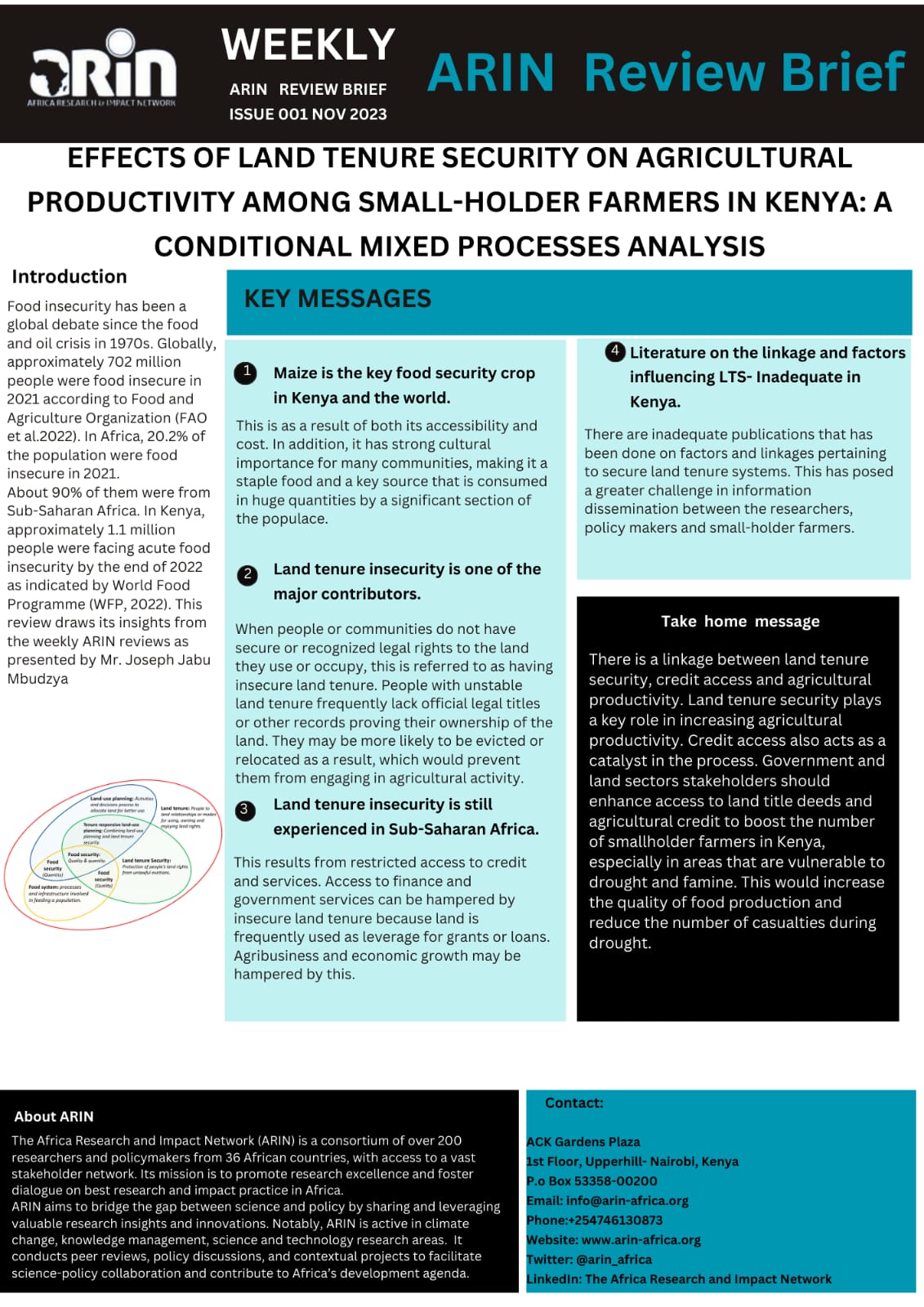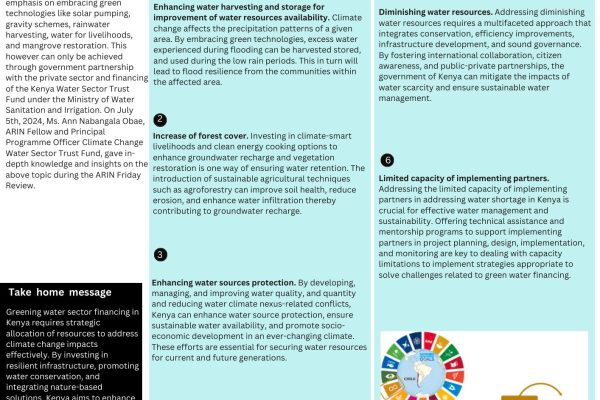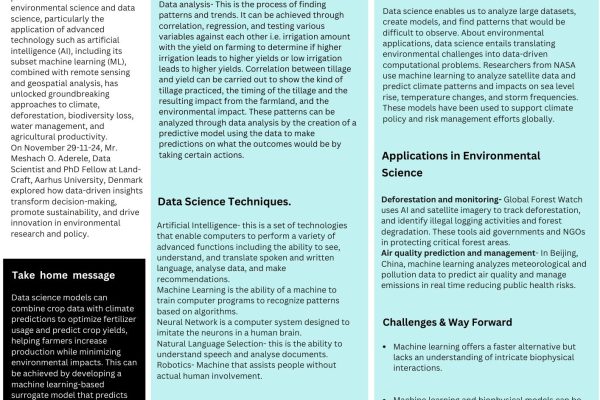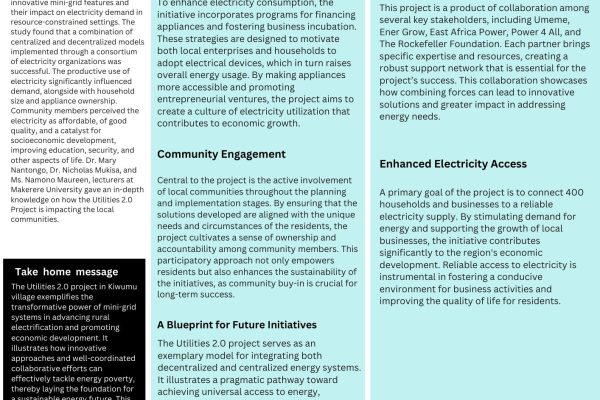Introduction
Food insecurity has been a global debate since the food and oil crisis in 1970s. Globally, approximately 702 million people were food insecure in 2021 according to Food and Agriculture Organization (FAO et al.2022). In Africa, 20.2% of the population were food insecure in 2021. About 90% of them were from Sub-Saharan Africa. In Kenya, approximately 1.1 million people were facing acute food insecurity by the end of 2022 as indicated by World Food Programme (WFP, 2022). This review draws its insights from the weekly ARIN reviews as presented by Mr. Joseph Jabu Mbudzya on 22nd September 26, 2023.
Key Messages.
- Maize is the key food security crop in Kenya and the world. This is as a result of both its accessibility and cost. In addition, it has strong cultural importance for many communities, making it a staple food and a key source that is consumed in huge quantities by a significant section of the populace.
- Land tenure insecurity is one of the major contributors. When people or communities do not have secure or recognized legal rights to the land they use or occupy, this is referred to as having insecure land tenure. People with unstable land tenure frequently lack official legal titles or other records proving their ownership of the land. They may be more likely to be evicted or relocated as a result, which would prevent them from engaging in agricultural activity.
- Land tenure insecurity is still experienced in Sub-Saharan Africa. This results from restricted access to credit and services. Access to finance and government services can be hampered by insecure land tenure because land is frequently used as leverage for grants or loans. Agribusiness and economic growth may be hampered by this.
- Literature on the linkage and factors influencing LTS- Inadequate in Kenya. There are inadequate publications that has been done on factors and linkages pertaining to secure land tenure systems. This has posed a greater challenge in information dissemination between the researchers, policy makers and small-holder farmers.
Conclusion
There is a linkage between land tenure security, credit access and agricultural productivity. Land tenure security plays a key role in increasing agricultural productivity. Credit access also acts as a catalyst in the process. Government and land sectors stakeholders should enhance access to land tittle deeds and agricultural credit to boost the number of small-holder farmers in Kenya, especially in areas that are vulnerable to drought and famine. This would increase the quality of food production and reduce the number of casualties during drought.




